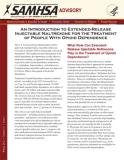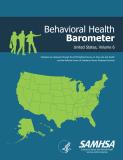
This brochure describes the use of methadone in medication-assisted treatment of heroin and other opioids, including narcotic pain medicines. It describes how to use methadone safely, the dangers of methadone overdose, and life-threatening methadone side effects.
Units per Product
Download
How to Use Methadone Safely
File Type: PDF
File Size: 335 KB






